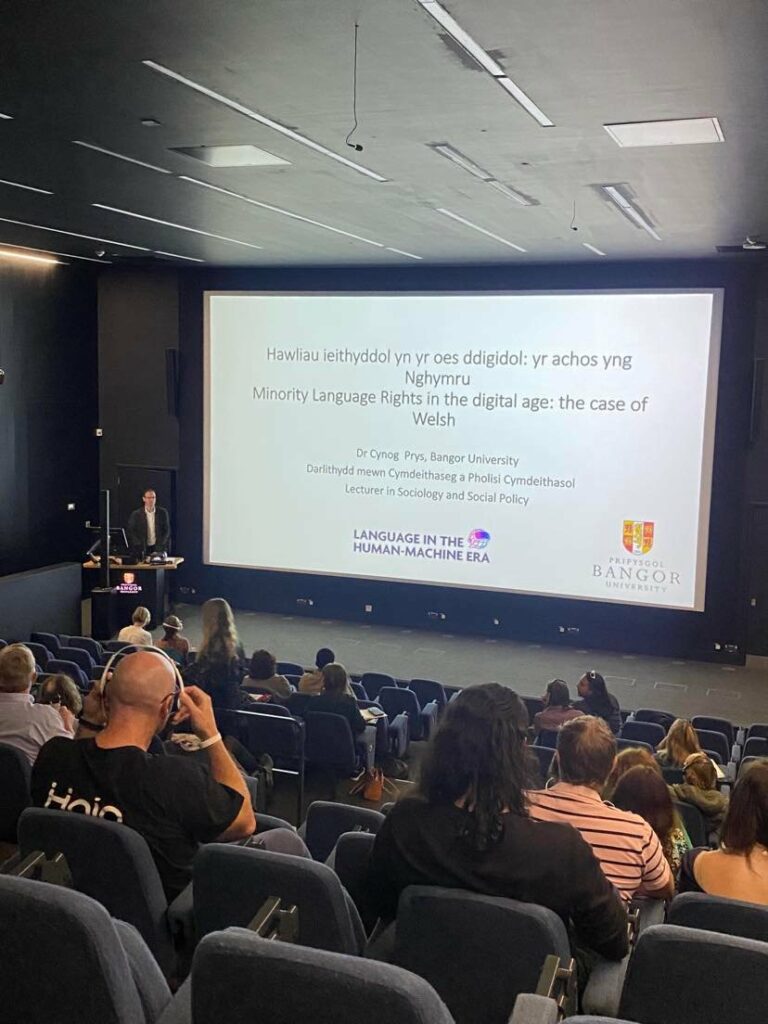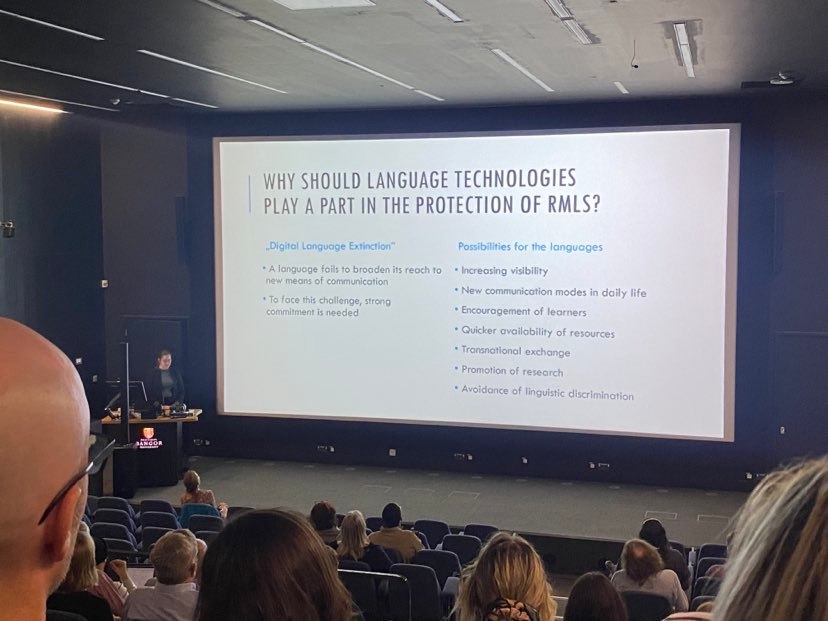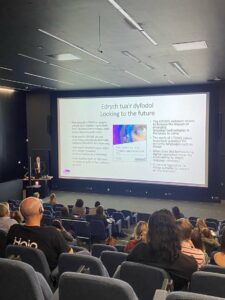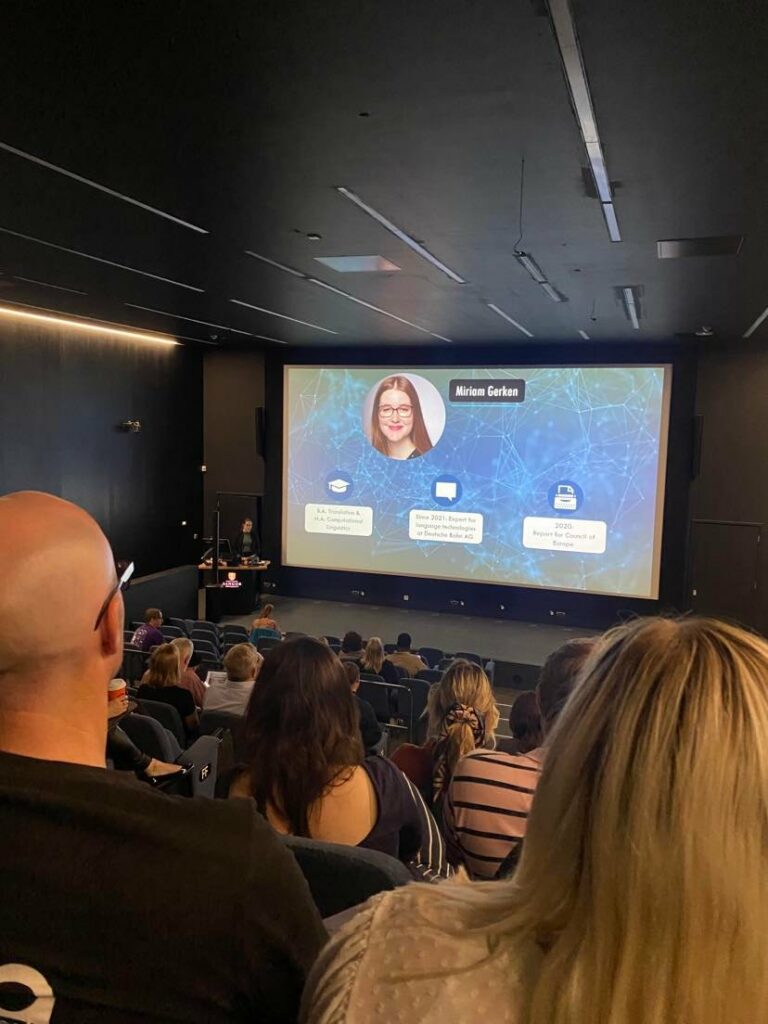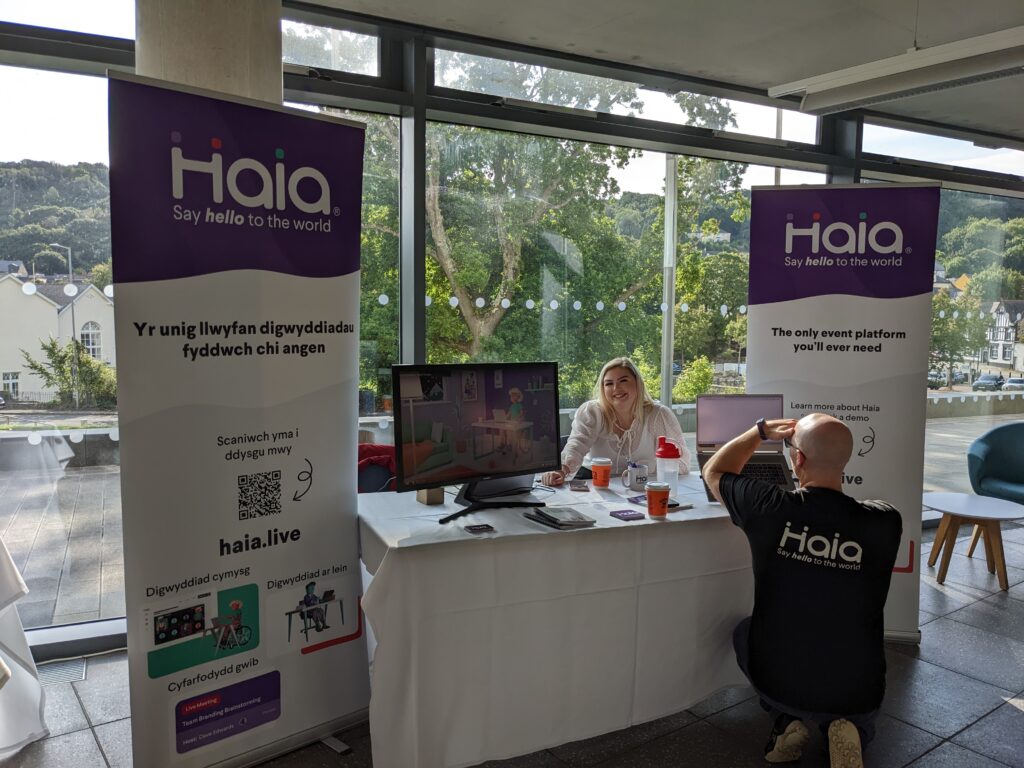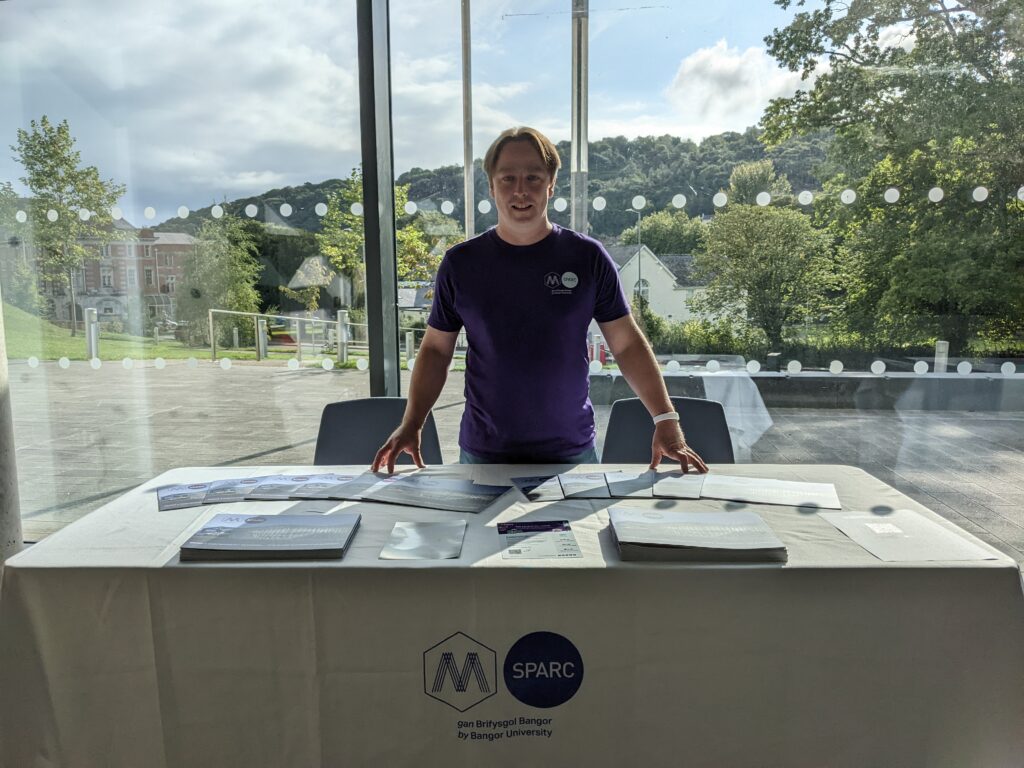News from Working Group 3 and Working Group 4 Workshops and Bangor Roadshow
On 9th September, over 70 academics, policy makers, practitioners, and technology developers attended a one-day workshop and language technology roadshow in Bangor University, Wales (UK). The event was organized by two LITHME working groups, the Language Rights working group (WG3), and the Language Diversity, Vitality and Endangerment working group (WG4). Local arrangements for the event were led by Dr Cynog Prys, School of History, Law and Social Science, Bangor University, who is a co-chair of the Language Rights working group. An introduction to the work of WG3 was provided by Professor Sharon O’Brien (Dublin City University), while an overview of the work of WG4 was provided by Dr Inge Birnie (University of Strathclyde).
The workshop presentations focused on language rights and ethical considerations within the digital sphere, with presentations on minority languages. There was a distinct Celtic language theme to the event, including presentations on Welsh, Irish and Scots Gaelic. However, the first presentation focused on access to mental health services and emergency services for sign language users in Wales, and the potential for using video chat to improve access for the deaf community. This paper was presented by WG3 members Christopher Shank (Bangor University) and Anouschka Foltz (University of Graz). The lack of meaningful language legislation for sign language users in Wales was a particularly striking theme, which raises important concerns for the language rights and accessibility to services of sign language users in Wales. The second paper, which was presented by Cynog Prys (WG3) focused on language policy in Wales and the use of Welsh in the digital domain. The paper emphasised how current Welsh language legislation has contributed to the creation of a digital language use sphere which provides services to Welsh language speakers, mainly within the public sector in Wales. Inge Birnie (WG4) rounded up the first session, with a focus on ethical considerations of language maintenance in the digital sphere. The central role of language communities themselves in deciding how to use technologies to maintain their language(s) was a key conclusion to this paper.
After the break, two keynote presentations focused on the place of minority languages within the broader European context. Miriam Gerken (WG3) focussed on the report that she authored for the Council of Europe, Facilitating the implementation of the European Charter for Regional and Minority Languages. The role of AI and conversational chatbots was given as an example of how current and future language technologies can be used to enable services in regional and minority languages. The final presentation of the workshop was given by Teresa Lynne (WG4) (Dublin City University), who focused on Irish language technologies within an EU context and reported on the work of the European Language Equality Project and other initiatives striving to assess and develop minority language use in the digital domain.
The workshop was followed by a language technologies roadshow featuring tech companies which work within a minority language context. A total of 10 language tech companies also took part in a roadshow showcasing the work of the sector in Wales and beyond. These included:
- Common Voice (Mozilla)
- Interceptor Solutions
- Gwe Cambria
- Haia
- Animated Technologies
- Meddal.com
- M-SParc
- Bangor University Language Technology Unit
- Coleg Cymraeg Cenedlaethol
- SaySomethinginWelsh
The roadshow provided an opportunity for companies and originations who develop language technologies to display their latest products to the public. This also provided a context for discussions around the future direction, future needs and future challenges faced by a multilingual and digital Europe. Three presentations were made during the roadshow. The first presentation was delivered by Hillary Juma (Common Voice Community Manager) and showcased their initiatives to develop speech technologies for a wide variety of languages. This presentation was followed by Dewi Bryn Jones (Bangor University, Language Technologies Unit) and focused on their work in developing speech technologies for Welsh, including their Welsh language voice assistant, Macsen. The final presentation was delivered by M-SParc, Bangor University’s Science and Technology Park. M-Sparc outlined the role they play in enabling their ecosystem of tenant companies to interact and collaborate on projects that include supporting minority languages in the digital world. Their tenant companies PAI Language Learning, Shloc, Animated Technologies and Haia were showcased at the event.
